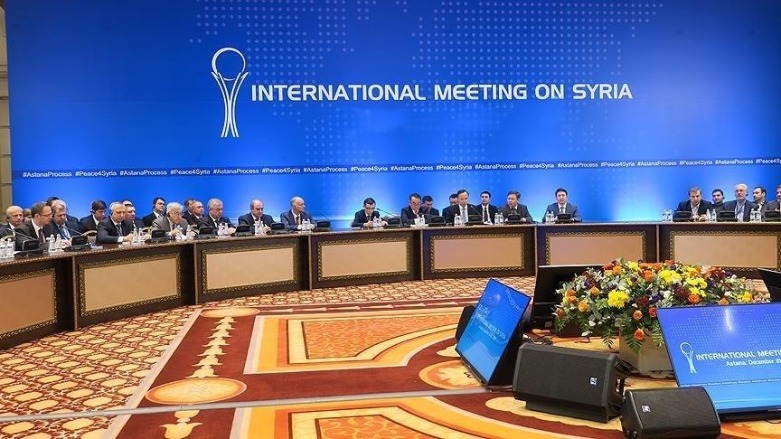Russia, Iran, and Turkey reject Kurdish self-rule in Syria
"Russia is trying to coordinate closely with Turkey on Syria, with the goal of boxing out the United States," says Nicholas Heras, a Senior Analyst and Program Head for State Resilience and Fragility at the Newlines Institute in Washington, D.C.

ERBIL (Kurdistan 24) – Russia, Iran, and Turkey said in a joint statement on Thursday that they reject Kurdish self-rule in northeastern Syria, a sign of opposition to the continued presence of the US in the region.
The three countries reject "all attempts to create new realities on the ground, including illegitimate self-rule initiatives under the pretext of combating terrorism," they said during the 16th International Meeting on Syria in the Astana Format, in the Kazakhstan capital of Nur-Sultan.
They also "reaffirmed their determination to stand against separatist agendas in the east of the Euphrates aimed at undermining the unity of Syria as well as threatening the national security of neighboring countries."
Russia, Iran, and Turkey further expressed their opposition "to the illegal seizure and transfer of oil revenues that should belong to the Syrian Arab Republic," the joint statement added.
Despite announcing the withdrawal of US forces from Syria in October 2019, then President Donald Trump left a few hundred troops in northeast Syria in Deir al-Zour and the Hasakah province, to the annoyance of the Russian backing the Syrian regime.
Related Article: Pentagon reaffirms US commitment to fighting ISIS in Iraq, Syria
"When President Trump announced the US will be withdrawing from Syria, the Kurdish leaders immediately started asking us to build bridges with Damascus," Russian Foreign Minister Sergey Lavrov said in response to a question from Kurdistan 24's Moscow correspondent Khoshawi Muhammad last week.
Lavrov claimed, however, that the Syrian Kurds "changed their mind." He called on the Syrian Kurds to work with Damascus instead of the US.
Read More: Russian FM says Syrian Kurds should follow Erbil-Baghdad example
"Russia is trying to coordinate closely with Turkey on Syria, with the goal of boxing out the United States," Nicholas Heras, a Senior Analyst and Program Head for State Resilience and Fragility at the Newlines Institute in Washington, D.C., told Kurdistan 24 on Thursday.
"The Russians are concerned with an indefinite U.S. military presence in Syria that would make the Autonomous Administration and the SDF indigestible for Damascus," he explained.
Additionally, "Turkey is concerned that it will not be able to dismantle the SDF and turn all of the Kurdish areas in northern Syria into a Turkish-dominated security zone."
"Russia and Turkey both therefore have a deep understanding that they need to coordinate together to kick the US out of Syria," Heras concluded.
The first round of negotiations in Astana was held in May 2015.
On 20 December 2016, the foreign ministers of Iran, Turkey, and Russia agreed to hold peace talks in Astana, Kazakhstan. Some analysts view the Astana talks as an attempt by Russia, Turkey, and Iran to undermine the UN-backed Syria talks in Geneva.
So far, the Kurdish-led Syrian Democratic Forces (SDF) have been excluded from the talks in both Geneva and Astana.
In 2019, the three countries expressed "their determination to stand against separatist agendas."